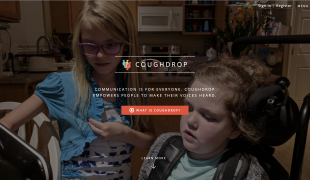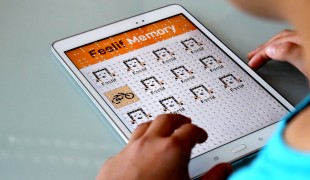- 3572
- 314
- 6
- 6
- 0
- Help Ukraine
About the solution
EZSpeech has developed an app used as an in-house simulator within Speech Centers and Rehab, as well as a tool to serve remote patients.
Artificial intelligence interprets movements of facial muscle and sound production and assesses accuracy of performance. Realtime feedback and tailored instructions enable the young user to understand the errors made and how to correct them. Masks and animation serve the user as native help and guidance.
Each exercise is graded on a scale 1-100 with overall grading assigned as follows: Super - 90-100% correct, Good - 70-90% correct, Nice try - 40-70% correct and Too many mistakes -below 40% correct. Stats and progress reports enables the caregiver and the child to monitor the overall progress of the kid, as well as performance by module and specific exercises and practices.
EZSpeech assesses correctness of sound pronunciation. The exercises separate testing for sounds at the beginning of the word, in the middle and at the end.
Exercises are grouped into 8 modules, covering all muscles of speech apparatus:
Bilabial: p, b, m, w, a, u, e, o
Labio-dental: f, v
Interdental: th (voice and voiceless)
Alveolar: t, d, s, z, n, l, r
Alveolar-palatal: sh, ch, zh, j
Palatal: j
Velar: k, g, ng
Glottal: h
Adapted from: https://ezspeech.zyrosite.com/
https://www.youtube.com/watch?v=vlQM4f5--3k
This solution shall not include mention to the use of drugs, chemicals or biologicals (including food); invasive devices; offensive, commercial or inherently dangerous content. This solution was not medically validated. Proceed with caution! If you have any doubts, please consult with a health professional.
DISCLAIMER: This story was written by someone who is not the author of the solution, therefore please be advised that, although it was written with the utmost respect for the innovation and the innovator, there can be some incorrect statements. If you find any errors please contact the patient Innovation team via info@patient-innovation.com
-
-
339
-
0
-
3738

Brian Whitmer, a software developer and father, created a communication system for his daughter with Rett Syndrome.
COMMUNICATION: Communicating, whether by speaking, listening, or other means
Neuromuscular Disorders
Videogame
App (Including when connected with wearable)
Enhancing health literacy
Managing Neurological Disorders
Building Supportive Community Relationships
Promoting inclusivity and social integration
To improve Treatment/Therapy
Preventing (Vaccination, Protection, Falls, Research/Mapping)
Raise awareness
Caregiving Support
General and Family Medicine
Internal Medicine
Neurology
Pediatrics
Physical Medicine and Rehabilitation
United States
-
-
-
788
-
2
-
13193

Feelif is a multimedia device for blind and visually impaired people
COMMUNICATION: Communicating, whether by speaking, listening, or other means
Reading
Video gaming
Blindness
Visual Impairment
Congenital Deafness
Hearing Disorders
App (Including when connected with wearable)
Videogame
Educational/Leisure device (book, toy, game...)
Vision problems
Hearing loss or ringing in the ears (tinnitus)
Managing Neurological Disorders
Improving Speech and Communication
General and Family Medicine
Medical Genetics
Neurology
Ophthalmology
Otorhinolaryngology
Pediatrics
Slovenia
-
-
-
357
-
0
-
4617

Memory Lane Games - Reigniting memories for those with Dementia & Alzheimer's
CAREGIVING
COMMUNICATION: Communicating, whether by speaking, listening, or other means
Alzheimer's Disease
App (Including when connected with wearable)
Videogame
Memory loss
Recovering cognitive function
Promoting self-management
Managing Neurological Disorders
Building Supportive Community Relationships
Promoting inclusivity and social integration
Enhancing Mental Health
Improving Speech and Communication
To improve Treatment/Therapy
Preventing (Vaccination, Protection, Falls, Research/Mapping)
Raise awareness
Caregiving Support
General and Family Medicine
Neurology
United Kingdom
-
 en
en